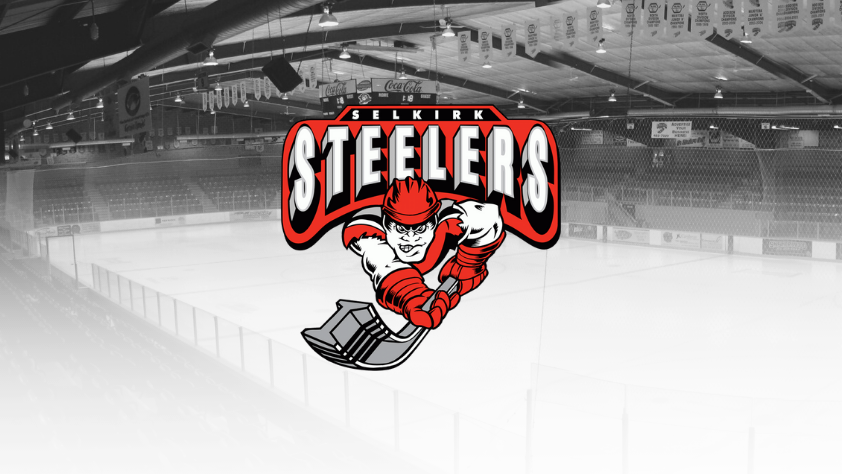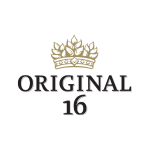Story by Dave Anthony
Alison Deneweth – Trainer/Athletic Therapist, Selkirk Steelers
Alison is one of the most interesting people in the Manitoba Junior Hockey League and her story starts all the way back in 1987 with a franchise that is no longer around. “I started with the Kildonan North Stars,” Alison says with a laugh. “I was there for two years.”
Being one of the first women to be in the hockey world in that role, Alison says she did stand out a bit “I was an anomaly. Heads would turn when I came in.”
It wasn’t long before the Steelers came calling and Alison made the move over to Selkirk, who were looking for someone with more of a medical background. When it came to being received by the players, Alison says it was a positive reception. “The players, I have to say, were always very good. They may have been a little cautious at first because it was so new, but once they got to see that I was there to help with no ulterior motive, they warmed up. They really appreciated having someone there to help.”
Not everyone in the game at that time was as welcoming as the Steelers or their players. “Some officials or staff on the other team were maybe not so welcoming… I got some stories I won’t share… but over time, people get to see you in the position longer and they become more accepting as you show them what you can do.”
The field of athletic therapy wasn’t how it is today, according to Alison. “At that time, there wasn’t the marriage there is between the educational institutes and the placement to teams. I had graduated from the University of Alberta, I had my degree and then I needed to start the collection of hours and at that time, you needed 600 hours in a collision sport. I had done some football already and I was just looking to collect hours and in hockey, there’s a lot available. It wasn’t easy to get in but that’s what I was looking to do, just collect my hours and get my certification.”
Getting the job with the North Stars was a wild process, as Alison explains. “The North Stars at that time had taken a hiatus, they were out of the league for a little while and with a new owner, he was looking to get back in and he was forward-thinking, and he was looking for interesting things that might capture the imagination. Two of us interviewed for the job and John (last name unknown) actually got the job but right before the season started, John got an opportunity to go up north and do paramedicine and so he took that. I’ll never forget, I got a call from the owner at the time, and he said ‘well, you’re not our first pick, but if you’d like the job, you can have it’ and I said to him, you won’t regret it. I got my first job knowing that I wasn’t anybody’s first pick but it was an opportunity, and I made the best of it. I started off in a position because I needed the hours and I stayed on because the money wasn’t too bad and I seemed to run out of reasons to keep coming back, so I can honestly say, there’s no ulterior motive, I’m here now because I just enjoy it so much.”
Filled with amazing stories, Alison recalls what it was like in the early days with the Steelers. “When I started, the Steelers were just building the new arena then and it was going to be so much different than what anyone else had in the league and they’d have all this space and all these plans… but like any good build, it takes longer than you think. So, the first 18 months I spent over in the old barn, which is an amazing piece of history. Trainers in the late ’80’s had rooms the size of broom closets. I actually shared a spot with management, who liked to go down and have chats with coaches between periods and there were sometimes heated debates. I had a little wooden medicine cabinet that was maybe 8 inches across and a foot tall and everything I needed had to be in there. I had a little chair and a medicine cabinet, and I had to juggle players around as the coaches argued about who should be on a line. In the early years, there was lots of laundry and we repaired everything like those old wool socks. We’d take them on the bus with a needle and I’d spend the bus ride working on socks. There were about 5 years I did both the equipment and the medical. It’s a tall order to do both so I wasn’t sad when someone else took it.”
Alison’s road through hockey might have been very different if not for what happened in 1986, a year before she was hired by the North Stars. “I got married that year. I remember I had my University degree, my parents lived in Alberta and I made the decision to move to Manitoba. This was the hub of athletic therapy at the time. So, I think part of the reason I was safe enough to get a job where maybe others wouldn’t have, was because I was married. I don’t know if a single woman at that time would have had that opportunity. I think the powers to be, saw that I was married and that somehow made it more acceptable or safer to be in that position.”
Both Alison and her husband were coaches “and you can’t have two of those in a house and make a go of it” Alison says with a laugh. “He was so supportive of me doing whatever it took to get the certification.”
Having always enjoyed hockey, Alison wanted to get into the game somehow. “As a kid, I had always wanted to play hockey but again, where I was, the area I was in, there was no girls team, no opportunity to play. So, my mom put me in figure skating which lasted just two years. The costumes… yeah, they were just not for me. I had always liked hockey. I enjoyed the culture; it’s been a great fit.”
In the hockey world, there’s been a noticeable shift when it comes to the involvement of women and Alison says there is still much more room to grow. “There’s always room but for sure it’s just more acceptable now. If you look at the roster now, I think women are half of the training staff. There have been moments before and it’s not like women have not been represented. Years ago, there was a female linesman in the MJ and I believe her name was Laura and that was kind of fun. At that time, I think we were the only two women around so we both kind of rolled in at the same time, there was a wink and a nod from across the room. She was fantastic. Very, very good as a lineman. Great senses. As we go forward, there will be more women and the more people see women around, you have the chance to change hearts and minds. I think it’s a lot easier to be a woman in the MJHL now and I think there will be more growth in the coaching department or management and on the board. There’s been more acceptance from players over the years. I’ve always treated the players with respect, and they’ve given that respect right back.
As you can imagine, being around hockey for a while, Alison has had an impact on some young girls, and she recalls the first time she was told just how big of an impact she made. “The first time I had someone come up to me, it was quite a few years ago, a dad came up to me and he said he had a daughter who was interested in what I did and asked if she could watch what I did. I thought about it and said for sure. I didn’t have her in the room, but we went to the clinic where I was, and she helped with the medicals. She interacted with the players and did the paperwork, and she was just so excited, it was a gut-check for me. It made me realize how blessed and lucky to be able to do this. There are other girls and women who want to do what I have the opportunity to do. It was a reminder to conduct myself in a way to make it easier to come along behind. I stand on the shoulders of women who took jobs in World War 2 that men typically had, and women went out and got an education in a time people thought it would be wasted on a woman. I got to stand on those shoulders and get an education and do something that was a-typical and as long as I did a good job and represented well, there would be women behind me that will do even better things in better ways. It’s really humbling to be one who cracked the door a little bit and see girls and some girls we haven’t met yet, walk through that door.”
Seeing other women in roles across the MJHL brings a smile to Alison’s face and her voice lights up. “Always great to see other women, especially the first game of the year. We have a bond. There’s a handful of us out there and we’re going to keep moving forward.”
Alison hasn’t stopped learning and used the canceled hockey season to continue another level of education. “I got on and ran a machine at a place that does the packaging of medication for nursing homes so, I went and got trained in that and did it for about 6 weeks at the start of the pandemic and a couple of times during waves. I had so much time on my hands, I don’t know what I was thinking but I signed up for a master’s program out of UBC so I’m taking classes for a Master’s in leadership. I don’t do well with time on my hands, so I filled it up.”
Despite doing amazing things, Alison is looking forward to the return of hockey, hopefully in the fall even though it may be different for her from years past. “Having done it so long, the last couple years I’ve had some students usually out of UofW and they come alongside and I’m really enjoying the mentorship side. I may not do as much traveling but having the year of way has let me know I’m not quite ready to hang it up. So, in the fall, I’ll be ready to get back to work.”





































